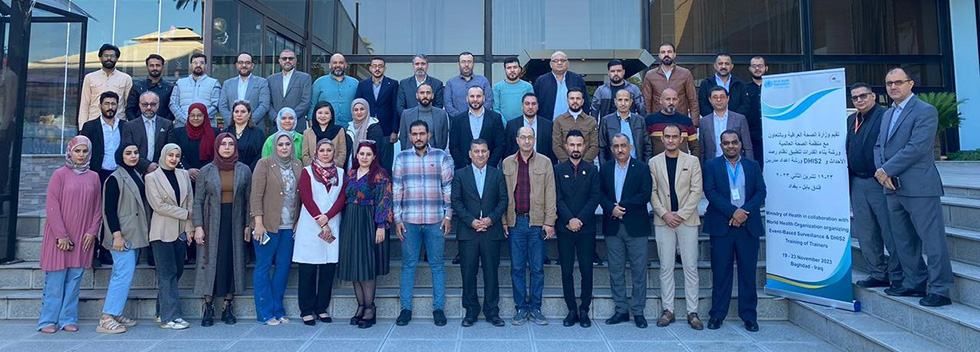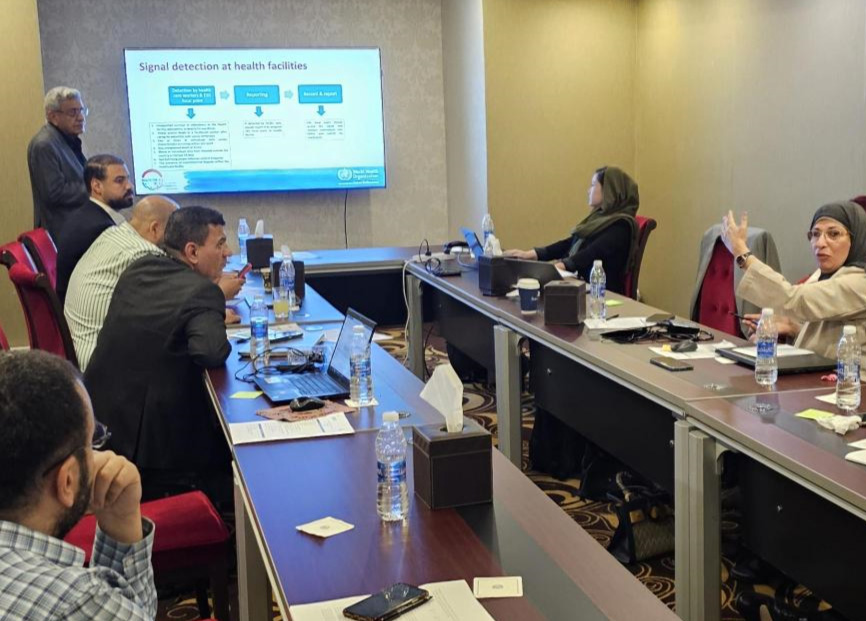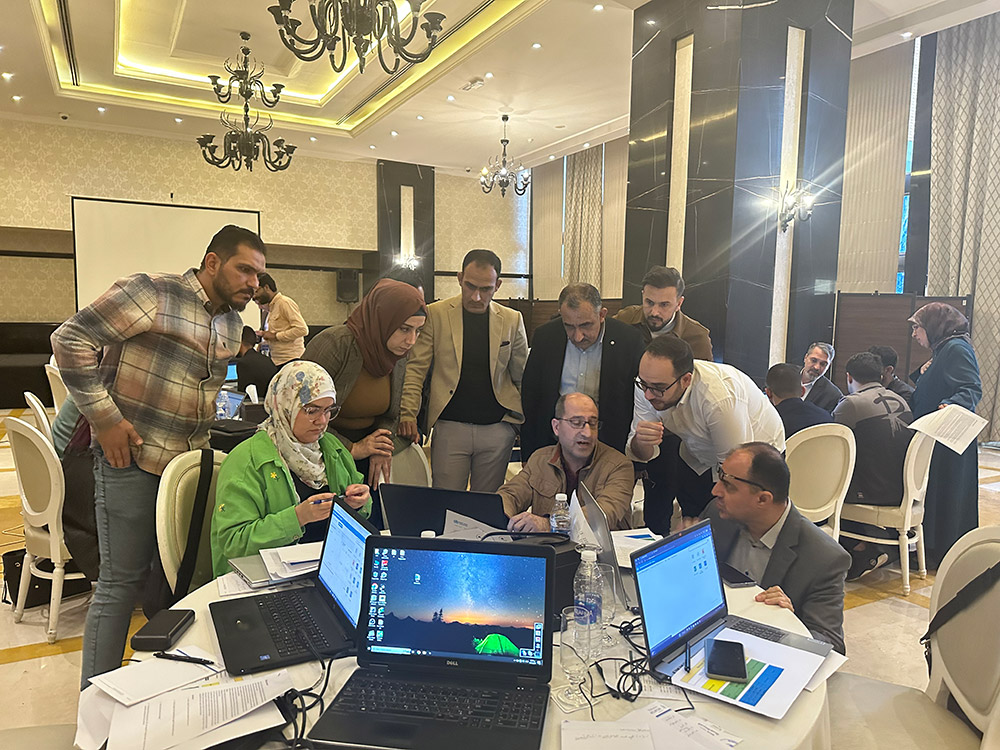 A group photo of the participants during the training. Photo credit: WHO/WHO Country Office in Iraq
A group photo of the participants during the training. Photo credit: WHO/WHO Country Office in Iraq
6 March 2024 – Rapid identification of health threats is vital for an effective response, especially in regions facing challenges like COVID-19, conflicts, floods and outbreaks. Given this urgency, the WHO Regional Office for the Eastern Mediterranean actively supports countries and territories to establish robust event-based surveillance (EBS) systems. This is an integral part of the regional strategy for integrated disease surveillance.
EBS sets out to systematically collect, monitor, assess and interpret mainly unstructured, ad hoc information about health events.
 Facilitators from the regional and country office, discussing signals with the Ministry of Health participants. Photo credit: WHO/Health Emergency Information and Risk Assessment UnitIn January 2024, the pilot phase of EBS was launched in Iraq, focusing on health facilities as primary information sources. This approach enables the timely detection and reporting of health events from disease clusters and health facility transmission to emerging or re-emerging threats.
Facilitators from the regional and country office, discussing signals with the Ministry of Health participants. Photo credit: WHO/Health Emergency Information and Risk Assessment UnitIn January 2024, the pilot phase of EBS was launched in Iraq, focusing on health facilities as primary information sources. This approach enables the timely detection and reporting of health events from disease clusters and health facility transmission to emerging or re-emerging threats.
Iraq had embarked on its EBS journey in November 2023, with a 5-day intensive training on EBS implementation. This was facilitated by the Regional Office’s Health Emergency Information and Risk
Assessment team, in collaboration with the WHO Country Office in Iraq. About 40 participants from national, provincial, district and health facility levels took part in the in-depth training.
Prior to the training, EBS guidelines were formulated, and a dedicated area within DHIS2 was set up to streamline data collection and reporting. DHIS2 – a digital platform for health data collection, analysis and dissemination – ensures standardized data across various levels, enabling early reporting.
 Regional and country office facilitators discuss the EBS module in DHIS2 with the Ministry of Health participants. Photo credit: WHO/Health Emergency Information and Risk Assessment teamAs part of WHO’s ongoing commitment to refining and optimizing EBS operationalization, an evaluation of the pilot phase is planned. This assessment aims to gauge the effectiveness of the implemented EBS strategies, identify areas for improvement, and ensure the sustainability of the EBS system in Iraq.
Regional and country office facilitators discuss the EBS module in DHIS2 with the Ministry of Health participants. Photo credit: WHO/Health Emergency Information and Risk Assessment teamAs part of WHO’s ongoing commitment to refining and optimizing EBS operationalization, an evaluation of the pilot phase is planned. This assessment aims to gauge the effectiveness of the implemented EBS strategies, identify areas for improvement, and ensure the sustainability of the EBS system in Iraq.
Iraq aims to build on the pilot phase and expand EBS implementation to further districts and sources. This strategic expansion will enhance the country’s preparedness for current and future health emergencies.
Beyond strengthening Iraq’s surveillance system, the EBS pilot phase serves as an invaluable model for other countries and territories of the WHO Eastern Mediterranean Region. EBS involves staying vigilant to a broad spectrum of health information, allowing for a proactive response to emerging health threats.




